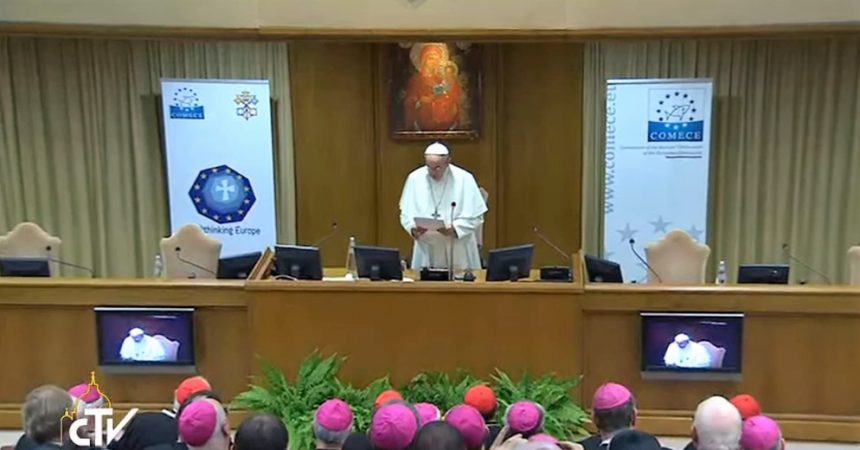Free markets fail to give due consideration to the equitable distribution of income, fail to regulate excessive power, fail to provide the kind of public goods that we desire and fail to protect assets that are essential to the common good, such as air quality, climate, biodiversity and our maritime environment.
Last week I was invited to the Vatican by the Holy See and the Commission of the Bishops’ Conferences of the European Community to address a distinguished audience on the question of the Future of Europe. There I was asked to talk about what changes are needed to make our economy more ‘human.’
I started by letting the audience into the well-kept secret that economics is not about profits, money and growth. Rather, it is about doing the best we can with our world’s scarce resources – our land, our labour, our capital, our natural resources – to ensure that we maximise human benefit. Economics is ultimately all about human wellbeing.
The economy, on the other hand, does not always deliver this. Free markets fail to give due consideration to the equitable distribution of income, fail to regulate excessive power, fail to provide the kind of public goods that we desire and fail to protect assets that are essential to the common good, such as climate, air quality, biodiversity and the maritime environment.
They fail to regulate booms and busts, bubbles and crashes, and even the assumption of rational self-interest, a basic pillar of free-market, is now known to be optimistic. People make systematic errors that their rational selves would normally avoid, often the result of myopic miscalculations. We do not always do what makes us happy. For while income and consumption matter to a certain extent, it is factors like health and environmental quality, social interaction, spiritual and cultural participation, trust in institutions and employment and equity that make the real difference.
But if the market cannot be trusted to get us there alone, what are our options, I asked? Naturally we turn to government intervention, policy, education, tools, incentives, laws. But this gives rise to a whole new set of issues which also need to be acknowledged and which all hinge on government failure: institutional capture, corruption, lack of information, delays and uncertain policy. We all know something about that. Governments are, after all, made up of the same kind of imperfect humans that inhabit the markets. Intervention at the European level can solve some of the issues but often creates others.
I was asked to propose one solution. I chose to argue for a simple, desirable and doable solution. I argued that we need to hold our governments accountable to matters beyond market activity, rather, to hold them accountable for all the other things they are supposed to do because the market does not. To do this we need clear, transparent, valid and reliable goals . We need to measure and communicate about wellbeing, social interaction, institutional trust, the extent of the pollution in which we live. We need to start using a performance indicator that goes beyond the market and beyond GDP (Gross Domestic Product). Already, there exist many sophisticated indices used in countries as far as Canada and Bhutan as well as those used by entities like Eurobarometer and Gallup. We need to fast track these measures and here Europe is well-placed to lead.













